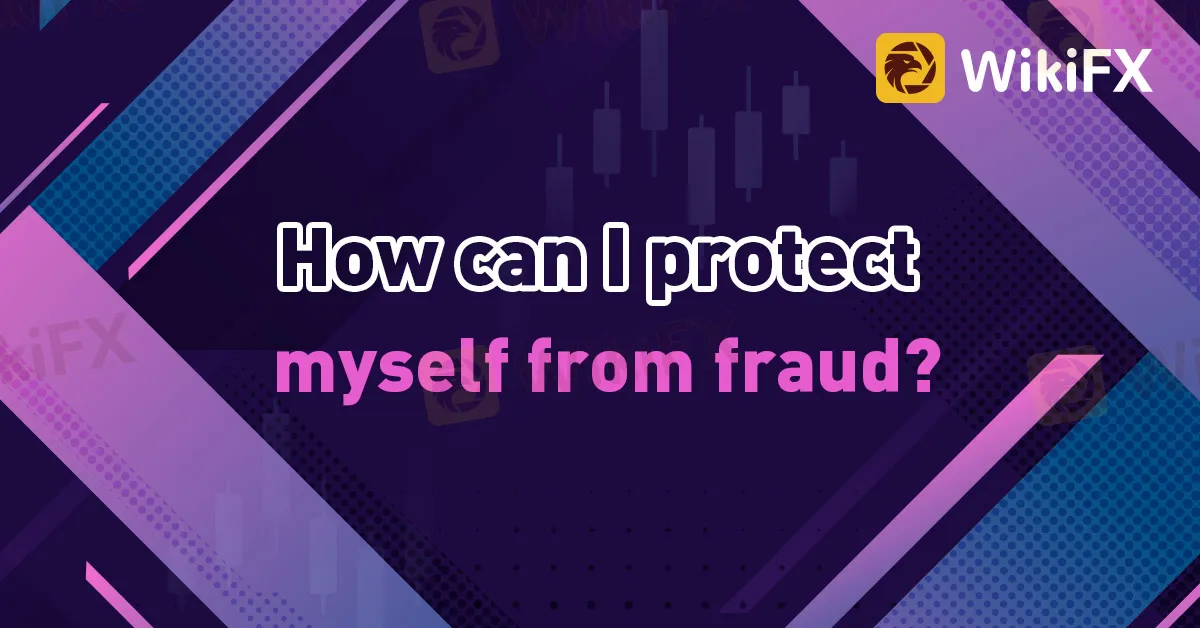简体中文
繁體中文
English
Pусский
日本語
ภาษาไทย
Tiếng Việt
Bahasa Indonesia
Español
हिन्दी
Filippiiniläinen
Français
Deutsch
Português
Türkçe
한국어
العربية
How can I protect myself from fraud?
Abstract:Numerous Forex-related scams target customers in South Africa, and we frequently receive emails from traders who are having trouble withdrawing funds from their accounts or are encountering other types of resistance from brokers whose only goal is to convince customers to deposit money before refusing to return it.

Numerous Forex-related scams target customers in South Africa, and we frequently receive emails from traders who are having trouble withdrawing funds from their accounts or are encountering other types of resistance from brokers whose only goal is to convince customers to deposit money before refusing to return it.
The finest resource for preventing forex frauds is the WikiFX app. WikiFX allows traders to rate and analyze forex brokers from all over the world. The program is available on both the Play Store and the App Store.
You can take certain actions to safeguard yourself.
Never give someone cash to do a transaction on your behalf. Anyone who makes investments on your behalf without a license from the Financial Services Conduct Authority is breaking the law in South Africa (FSCA).
Never transmit money to someone you meet on social media; according to our study, Facebook and Instagram are the origin of more than 50% of forex frauds.
Never believe a broker or anybody promising assured results. Profits are never guaranteed in high-risk speculation like forex trading.
Always verify a broker's regulatory status. Brokers that are subject to regulation must post their license numbers on their websites.
Once you have a broker's FSP or license number, you can check with the regulator to determine if it is valid. All licensed Financial Services Providers are listed on the FSCA's database in South Africa (FSPs). You can also examine the FSCA's register of all licensed Over-the-Counter Derivative Providers, which lists all South African-based Forex brokers who are required to obtain an ODP license as of 2021. (ODPs).
If your broker is not situated in South Africa, other important authorities with searchable registers include the FCA in the UK, ASIC in Australia, and CySEC in Europe.
What should I do if I believe I was defrauded?
The first thing you should do if you think you've been duped by a broker is get in touch with your local authority and file a complaint. You can get in touch with the FSCA in South Africa here. You can also get in touch with the FAIS Ombudsman using this page if your complaint involves a licensed South African broker.

Disclaimer:
The views in this article only represent the author's personal views, and do not constitute investment advice on this platform. This platform does not guarantee the accuracy, completeness and timeliness of the information in the article, and will not be liable for any loss caused by the use of or reliance on the information in the article.
Read more

Many Social Media 'Investment Gurus' Are Scammers Preying on Malaysian Traders
Social media platforms have become breeding grounds for scammers posing as investment gurus, exploiting the growing interest in forex and cryptocurrency trading among Malaysians. Fraudulent "financial experts" often create the illusion of legitimacy by offering enticing stock analyses and promises of high returns.

IronFX Launches $500K Grand Trading Slam with Big Prizes
Join IronFX’s $500K Grand Trading Slam for a chance to win major cash prizes. Compete in trading challenges and rank up to the grand prize! Start trading today.

What Happens if A Broker Goes Bust?
For traders, understanding what happens when a broker collapses is crucial. It serves as a reminder that choosing the right broker involves more than just attractive spreads and swift execution; it’s about safeguarding funds in case things go wrong.

Trading is Not Gambling—Unless You Make It So
In the world of online trading, a common misconception persists: trading is often seen as no different from gambling. This belief is particularly prevalent among newcomers, who may view the financial markets as a fast-paced game where winning is just a matter of luck. But trading, when done correctly, is far from mere chance!
WikiFX Broker
Latest News
What Makes Cross-Border Payments Easier Than Ever?
Trader Exposes Unethical Practices by STP Trading
Italian Regulator Warns Against 5 Websites
Currency Calculator


